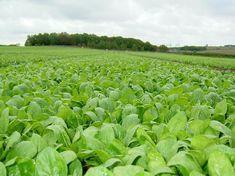
New research has confirmed that eating vegetables can prevent the onset of failing vision, according to professor Ian Grierson, the head of ophthalmology at the University of Liverpool. The theory was originally published in The Journal of the American Medical Association in 1994 by Dr Johanna Seddon of Harvard University, but more than 115 clinical trials and studies have now proven that lutein, and its isomer zeaxanthin, available in many vegetables, can help supplement macular pigments in the eye, which are otherwise being depleted through years of exposure to light and oxidative stress.
Spinach and spring greens are especially rich in the two yellow pigments called lutein and zeaxanthin, both capable of absorbing blue light, and it is that blue light from the sun’s rays that is most damaging to an area at the back of the eye called the macula. The macula is a sensitive central region of the retina which, when damaged by exposure to sunlight, can result in macular degeneration. A less serious form of this, in its dry form, generally affects people in their fifties onwards affecting the ability to make out detailed, sharp images. In its wet form it takes away central vision, resulting in people no longer being able to see what is directly in front of them.
Research shows that increasing the daily intake of lutein to 6mg a day will appear to reduce the risk of developing macular degeneration by 57 per cent compared with eating less than 1mg daily.
Kale is the best source of lutein with 22mg a 100g serving, whilst spinach, spring greens and watercress provide 13mg. Red peppers provide almost 14mg every 200g eaten and broccoli and peas have about 2mg per 100g serving.



